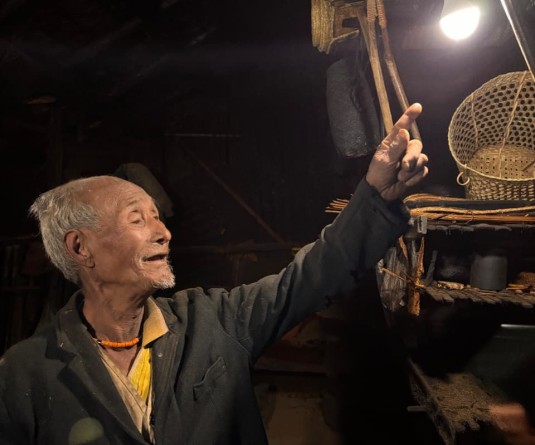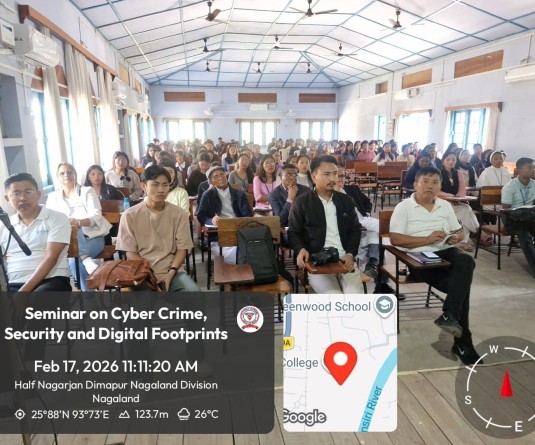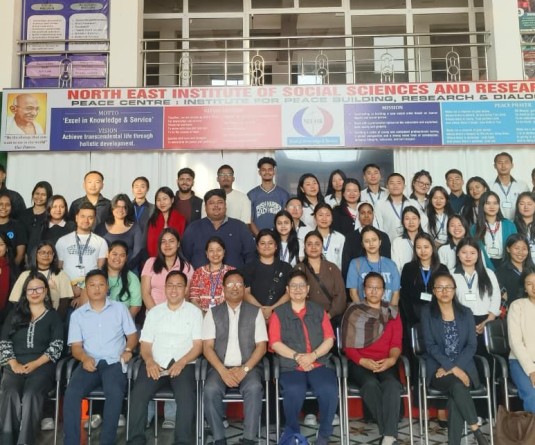State review meeting on National Rabies Control Programme and National Programme on Climate Change and Human Health held at Hotel Saramati, Dimapur on May 6 and 7.

Dimapur, May 8 (MExN): State review meeting on National Rabies Control Programme (NRCP) and National Programme on Climate Change and Human Health (NPCCHH) was held at Hotel Saramati, Dimapur on May 6 and 7.
The meeting started with a presentation from Dr Nyan Kikon, State Nodal Officer, NPCCHH Nagaland on Status Updates of NPCCHH 2024, stated a press release received here.
He stated that during the program’s initial year of implementation, activities such as Orientation, training of health care workers on NPCCHH and IEC activities were carried out. With the formation of District Task Force for Climate Change, all districts are to prepare District Action Plans on Climate Change and Human Health specific to their districts and submit on priority as it is an activity closely monitored by National Center for Disease Control (NCDC), he stated.
Dr Kikon informed that Acute Respiratory Infection (ARI) Reporting has been initiated in Kohima, Dimapur and Mokokchung and very soon other districts are expected to be on boarded too. Reporting for Heat Related Illnesses (HRI) have started since March 1, 2024 and will continue until further directive from National Center for Disease Control (NCDC).
He stated that Green Climate Resilient Facilities is an important Program activity and as such, Health Units with Solarization, Rain-water harvesting, NQAS Certification and Kayakalp awarded will be prioritized, and Co-ordination with State Level and District level National Quality Assurance Standards and Kayakalp teams will be required. Further to that, Energy audit also needs to be carried out from certified Energy Auditors.
In terms of preparedness of health facilities on heat related illness, Dr Kikon said, “Health facilities will identify a room as Heat Stroke Room. Heat related management and intervention to be initiated in all health units. Ambulances will also need to be equipped with cooling measures.”
It was envisaged that IEC Activities will also be enhanced. District-wise Reporting Status of HRI and ARI were also reviewed during his presentation.
Green & Climate Resilient
Angelina, Programme Officer, NISHTHA-Jhpiego gave a presentation on Green & Climate Resilient (GCR) Baseline Assessment. She stated that baseline assessment would be conducted to identify gaps and build a GCR facility to safeguard human from extreme climate change and adverse effects of Extreme Weather Events. Thematic areas in GCR included energy efficiency and solarization, water management, waste management, green and smart building, and climate resilient measures.
Meanwhile, Dr Nyan gave the closing remarks on GCR Baseline assessment stating that selected representatives from all districts will be called and a comprehensive training on the GCR Checklist will be provided to carry out in their respective Districts.
On National Rabies Control Programme, Dr Nyan requested the district to use the revised Monthly Rabies Report Format and to be alert of any animal bites reported. He stated that the NRCP envisioned eliminating any deaths related to rabies by 2030. All districts are to strengthen their surveillance and ensure rabies vaccines are stored correctly to retain its potency. More rabies vaccines will be procured by the State as per need-basis and requested the districts to ensure all data are verified before reporting.
The programme was chaired by Dr Sentimongla Pongen, Medical Officer, District Hospital Dimapur and the vote of thanks was delivered by Dr Kavito Zhimomi, DSO, Dimapur.






